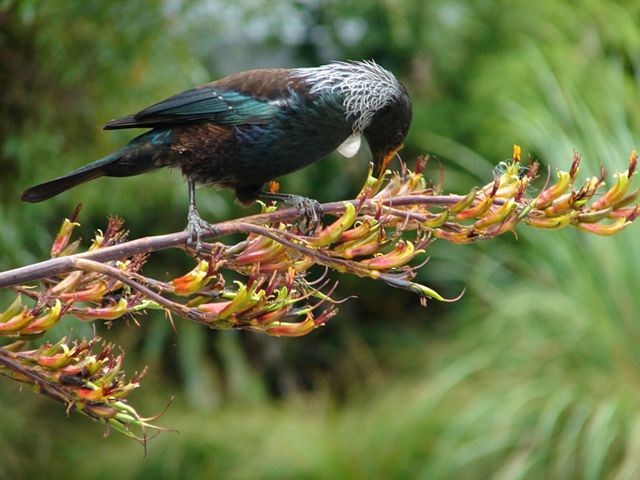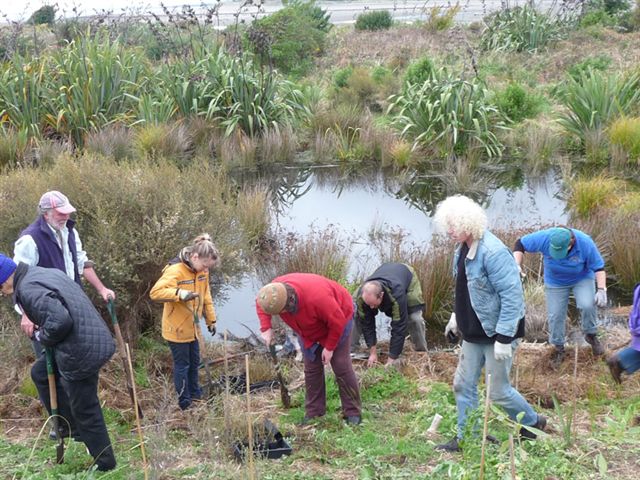Ever heard a possum lurking outside your bedroom window in the middle of the night, breathing heavily, or a rat’s tiny feet scuttling across the roof overhead? Neither experience is pleasant.

Instead, imagine hearing native birdsong, a mini bird sanctuary of dawn chorus in your own backyard. Imagine a rat or possum trap feeling as natural in someone’s garden as a trampoline or that cut-price barbecue from Briscoes.
Thanks to the hard work of the Crofton Downs and Glenside communities, this picture is becoming more reality than dream. Crofton Downs, for example, is well on its way to being declared the first predator-free suburb in New Zealand and it’s no small achievement for Halo, a charity owned by the Morgan Foundation, which aims to make all of Wellington predator free by taking on one rat at a time.
“One or two rats can multiply into 15,000 rats in a year,” explains Halo head Nick Tansley. “In Crofton Downs, they’ve killed over 100. It’s power to the people!”
The coolest little capital is blitzing the predators
Wellington has the potential to become completely predator free. Not only does it already have a predator-free hotspot – Zealandia – but also large natural areas with very low predator numbers, such as Otari Wilton’s Bush, East Harbour Regional Park and Khandallah Park, to name a few. It also has the geological advantage of sea borders and hilly ridges.
There are over 4,000 conservation groups in New Zealand – an impressive tally for a small country of 4.4 million people – but Halo breaks it down to an individual level, rallying Wellywood households to chip in and play their part in a very simple way.

How it works: On the Halo website (no longer active), you sign up for free as a Halo Household. You’ll receive a welcome pack with expert advice on how to start trapping and receive discounts. Traps are also available at Zealandia’s gift shop, alongside the toy moa and Four Square cufflinks, and have been “flying out the door”, says Tansley.
Set up a trap in your back yard with some bait (peanut butter, eggs and rabbit pellets are popular enticements) and you’re good to go.
Over 1,500 households have signed up so far, proudly displaying the ‘Halo Household’ sticker on their letterboxes, and can be seen dotted around Wellington on the Halo map.
“Trapping brings people closer together,” says Tansley. “Everyone’s working together [towards the goal of Wellington as a predator-free capital] and helping each other out.” He’s even heard of people perched on their porches armed with slug pellets. “It gets quite addictive.”
Rats and cats, oh my
What if the thought of handling dead rodents makes you shudder? A local volunteer, aka ‘Nigel the Rat Man’, can “come and grab it for them,” says Tansley. Tick.
What if you have small children? There are child-friendly traps. Tick.
What if you have a cat or five? There are cat-friendly traps too.
Tansley points out that you can still own a cat while considering the native wildlife: microchip your cat so they can be identified in a cat roundup (Stewart Island in particular has a problem with feral cats destroying birds). Try owning one cat instead of five to reduce the harm, and keep your cat indoors at least some of the time.

If you’re from out of town and want to launch something similar in your own area, Tansley suggests starting small and simple.
“Go to the suburb most likely to achieve and start there. Focus on streams and farmland, doable little chunks.”
But Halo is not preaching to the converted. “We’re not trying to ram it down people’s throats or offer too many options. We found that giving away a free camera didn’t make much difference – it’s about being genuinely passionate about it. If you’re already living near one of these areas [the sanctuaries] think: ‘Am I getting the benefit? How can I do my part?’
“It’s as simple as baiting and putting out a trap and checking it every few days. Then you’ve done your bit.”

